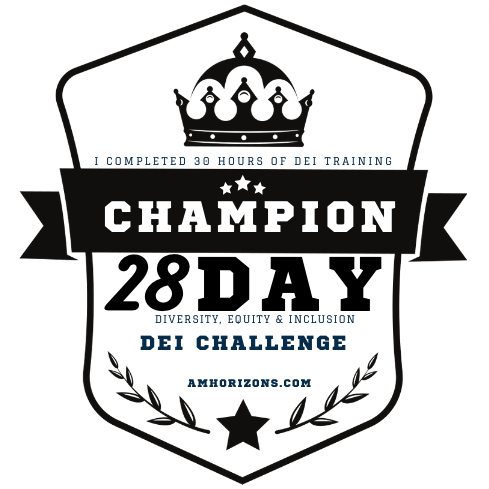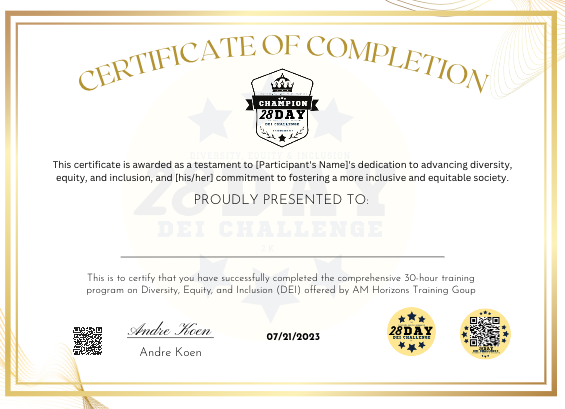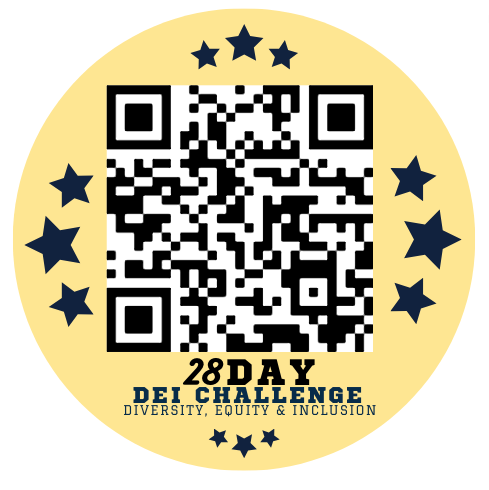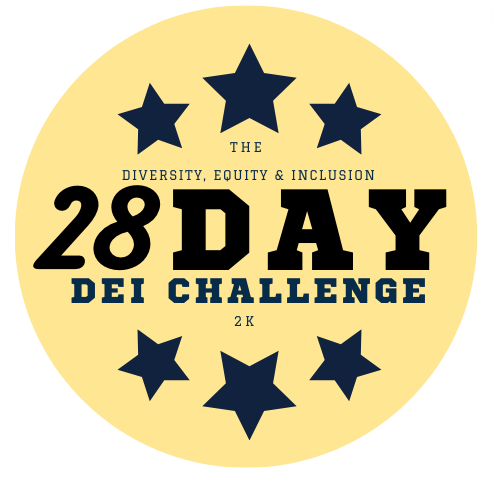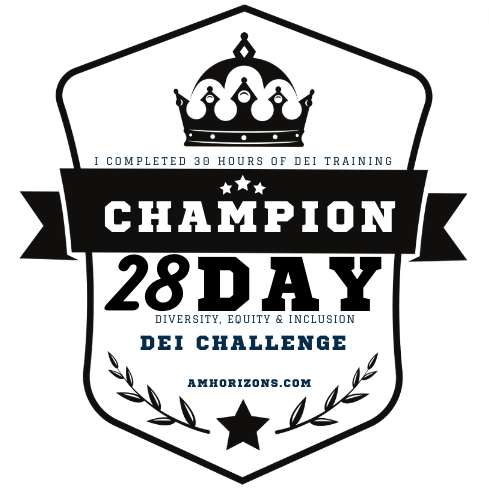Congratulations
|
Certificate of Completion
This is to certify that _______________ has successfully completed the comprehensive 30-hour training program on Diversity, Equity, and Inclusion (DEI) Concepts. By participating in this training, [Participant's Name] has demonstrated a deep commitment to understanding and promoting diversity, equity, and inclusion in various contexts. Through engaging in interactive sessions, thought-provoking discussions, and practical exercises, ___________ has acquired a solid foundation of knowledge and skills related to DEI. During the training, [Participant's Name] explored key concepts and theories surrounding diversity, equity, and inclusion, including unconscious bias, privilege, intersectionality, cultural competence, and systemic discrimination. [He/She] gained insights into the historical and societal factors that shape diversity issues and acquired a nuanced understanding of the challenges faced by marginalized groups. Through this training, [Participant's Name] developed the ability to recognize and address implicit biases, foster inclusive environments, and promote equitable practices in both personal and professional settings. [He/She] demonstrated a commitment to creating inclusive spaces, valuing diverse perspectives, and actively challenging systemic barriers to equity. ______________ actively engaged in group activities, shared experiences, and demonstrated a willingness to embrace diversity, fostering an inclusive and respectful learning environment for all participants. [His/Her] dedication to learning, self-reflection, and growth exemplifies [his/her] commitment to creating a more inclusive society. With the successful completion of this training, [Participant's Name] is equipped with the knowledge, skills, and tools necessary to contribute to the advancement of diversity, equity, and inclusion principles in various domains, be it within organizations, educational institutions, community groups, or social justice initiatives. This certificate is awarded as a testament to [Participant's Name]'s dedication to advancing diversity, equity, and inclusion, and [his/her] commitment to fostering a more inclusive and equitable society. Congratulations on your achievement! |
Skills and Competencies attained
Skills and Competencies Earned in the Program:
- Understanding of Diversity, Equity, and Inclusion (DEI) Concepts: Participants gained a comprehensive understanding of key DEI concepts, including unconscious bias, privilege, intersectionality, cultural competence, and systemic discrimination. They acquired knowledge of the historical and societal factors that contribute to diversity issues and the importance of addressing them.
- Self-Reflection and Awareness: Participants developed the ability to engage in self-reflection, examining their own biases, beliefs, and attitudes. They learned to recognize and challenge their own unconscious biases and assumptions, fostering personal growth and a deeper understanding of the impact of their actions on others.
- Cultural Competence: Participants acquired cultural competence, which involves the knowledge, understanding, and skills to effectively interact with individuals from diverse backgrounds. They learned to navigate cultural differences, embrace diversity, and demonstrate respect for various cultural norms and practices.
- Communication and Listening Skills: Participants honed their communication and active listening skills, enabling them to engage in open and respectful dialogues with individuals from diverse backgrounds. They learned to listen actively, seek understanding, and communicate effectively in cross-cultural contexts.
- Inclusive Leadership: Participants gained insights into inclusive leadership principles and practices, learning how to create inclusive environments, foster diversity, and empower others. They developed the skills to promote inclusive decision-making, collaborate with diverse teams, and create opportunities for marginalized groups.
- Conflict Resolution and Mediation: Participants acquired conflict resolution and mediation skills to address diversity-related conflicts effectively. They learned techniques to facilitate constructive dialogue, navigate difficult conversations, and find mutually beneficial resolutions that uphold DEI principles.
- Equity Advocacy and Allyship: Participants developed the skills to advocate for equity and social justice, becoming effective allies for marginalized groups. They learned strategies for challenging systemic barriers, promoting equal opportunities, and taking action to create more inclusive and equitable environments.
- Organizational Change Management: Participants gained an understanding of how to drive organizational change to promote diversity, equity, and inclusion. They learned strategies for assessing organizational practices, developing action plans, and implementing initiatives that foster an inclusive culture.
- Data Analysis and Measurement: Participants developed the ability to collect, analyze, and interpret diversity-related data. They learned to identify relevant metrics, measure progress, and evaluate the impact of DEI initiatives to support evidence-based decision-making.
- Ethical and Legal Considerations: Participants gained an understanding of the ethical and legal considerations related to diversity, equity, and inclusion. They learned about relevant laws, regulations, and policies to ensure compliance and uphold ethical standards in promoting diversity and inclusion.
Keywords for the competencies
- Diversity and Inclusion
- Cultural Competence
- Bias Awareness
- Self-Reflection
- Communication Skills
- Active Listening
- Inclusive Leadership
- Conflict Resolution
- Equity Advocacy
- Allyship
- Organizational Change
- Data Analysis
- Ethical Considerations
- Legal Compliance
- Social Justice

